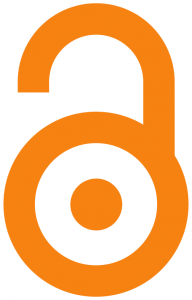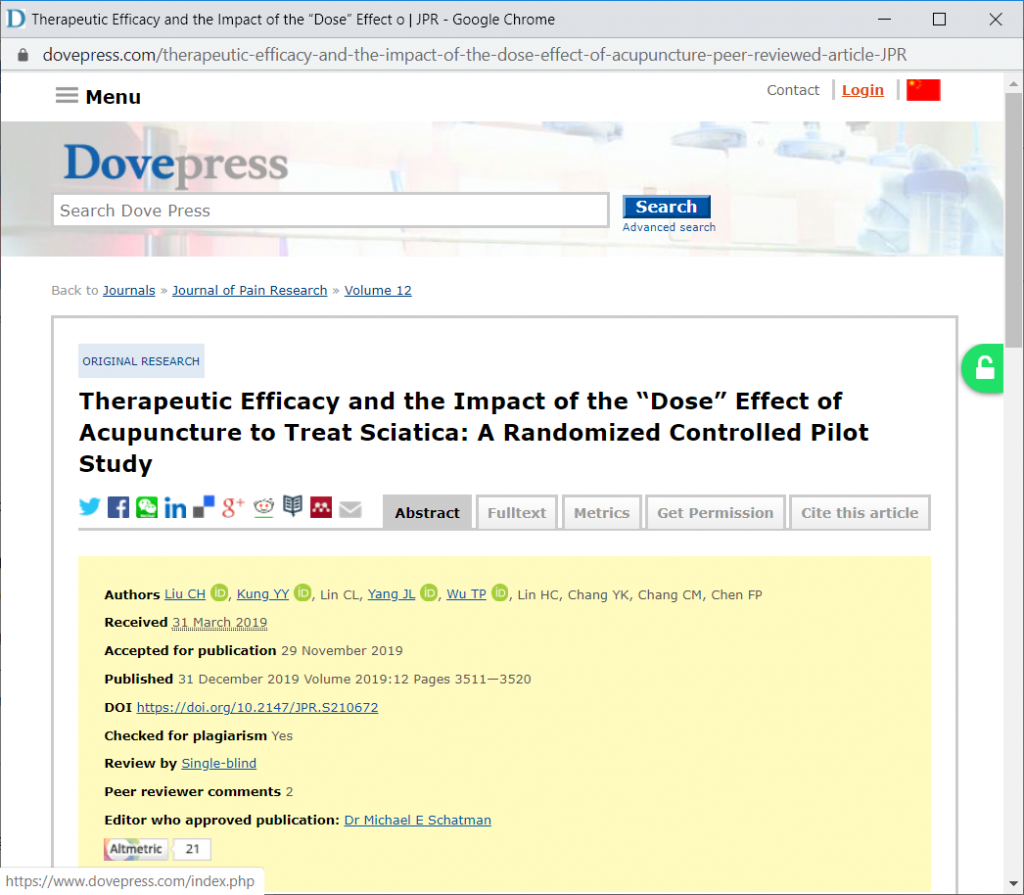You’re not supposed to Google health conditions. You’ve heard that advice. I’ve heard it, and I get it because there’s some crazy stuff on Google.
I also freakin’ hate that advice, because it’s not grounded in reality. Not Googling things would be fantastically practical if you had 24/7 access to your doctor, and your doctor knew all the latest developments in all fields of medicine and gave you advice perfectly calibrated to your situation. But until AI puts real doctors out of business, that’s not how it works.
Until then, there will still be times when you wake up in the middle of the night, panicked and in pain. Your doctor is probably not taking your calls. And then what are you going to do?
Or maybe you’d love to talk to your doctor, but she books appointments three months in advance. Are you supposed to do nothing in the interim?
And what if your situation is even worse? What if you’re uninsured and permanently housebound, and getting to a doctor at all is not going to happen?
Personally, I’ve always thought it was idiotic to assume that I wouldn’t put at least as much effort into researching my health as I would into, say, buying a blender. So I Google. And you probably do to.
So the question we should be asking is, how do you Google responsibly? Sadly, I’ve found that many patient-facing health websites — even those I thought were reputable — often regurgitate myths or outdated knowledge. If you really want to get up to speed on your condition, you need to get into the scientific literature.
I may not be a trained researcher or scientist, but my work on the business side of academic publishing has taught me a thing or two about how to research a subject. First, I do know the conventions, practices, regulations, and cultures that govern research communities. Second, I’m familiar with tools and resources that even many researchers are unaware of. I’ve made good use of these myself.
Finding Research for Free

The truly aggravating thing about digging through research papers is that so many of them are behind a paywall. The good news is that many biomedical papers are freely readable in some form or other if you just know how to find them. Here are my tips for doing so.
1) Just use Google Scholar.
I could make this really complicated. There are lot of new and new-ish scholarly discovery platforms, and they all claim to have a better search or cooler visualizations or something. I could go into the pros and cons of each one, but…just use Google Scholar. It’s easy, you don’t have to register, and believe it or not, Google’s search engine doesn’t suck.
Google Scholar has another advantage that other platforms don’t. Lest you forget, Google is the gatekeeper of the internet. Every content producer who wants their stuff to be found sucks up to Google as often and as hard as they can. If there is some data issue that prevents Google from indexing a journal properly, you can bet the publisher will be hell-bent on fixing it. The same isn’t true of other sites. Say what you want about Google, if an article exists it will be indexed there.
There are times when I’ll search other sites because I want to limit results to a particular set of free content. More on that later. But as an all-purpose starting point? You guessed it.
2) Install the Unpaywall browser extension: Even if the official version of record is behind a paywall, there may be a freely accessible version available on another (legit) site. The Unpaywall extension will automatically check and let you know by means of a little gray or green icon whether there is a free version somewhere. Clicking on a green icon will bring you right to the document.

3) Search PubMed Central: PMC is backed by the U.S. government, and its history is as bureaucratic as you’d expect. But basically people got upset that taxpayers couldn’t read taxpayer-funded research. So in 2007, President Bush signed a law that required papers funded by the National Institutes of Health (NIH) be deposited in PubMed Central. Since then, other funders (particularly in Europe) have added similar requirements. Publishers have even started depositing the full text of many manuscripts that have no funding requirement.
The bottom line is that PubMed Central is a great resource if you’re researching medical issues, because 1) it is specifically for biomedical research, and 2) the full text of all articles is available for free.
In the spirit of bureaucracy, there’s some fine print. First, PubMed Central is related to, but distinct from, PubMed. The important difference for the layperson is that PubMed may only index the article abstract (basically a summary), while PMC has the full text.
Also, this might be obvious, but don’t use PMC to look up non-biomed subjects. You want to know about political science or geology? Unless you’re interested in the health implications, look elsewhere.

4) Email the author: If you absolutely can’t find an article with a free version available, it’s absolutely acceptable to email the author and ask for a copy. Most publishers include the corresponding author’s email with the article information — how else are fellow researchers supposed to get in touch?
Researchers, like many professionals, get swamped with email, so it’s best to be as clear and direct as possible. My emails go something like this:
Subject Line: Can you send me the PDF of your article, “Super Cool Research Thing”?
Body:
Dear Dr. Fancypants,
I found some interesting references to your article, “Super Cool Research Thing” [Note: I include a link to the article page.] Unfortunately, I don’t have a subscription to that journal. Could you please email me the PDF?
I’m only interested in reading the article, since I have a layperson’s interest in your field. I will not share the PDF, copy it, republish it, or use it for anything beyond my own reference.
Thanks so much!
Of course, not all authors will get back to you, but many are happy that people are taking an interest in their research and will gladly share. You have nothing to lose by trying.
Whatever you do, don’t email the journal editor or publisher and ask for a free copy. I used to monitor these requests, and it was amazing how many people would write and say something like, “I tried to read a copy of this paper, but I couldn’t find a way to do it and not pay. Please, can you give me this paper for free?!”
I really, really wish I could have sent this reply:
Uh, if we wanted that article to be available for free, we would have made it available…for free! But we didn’t. Publishing is our business, it’s not a public service. You give us money, we give you the article. That’s how it works.
In case you’re wondering how that squares with my earlier advice on how to get research articles for free, it’s complicated and involves certain copyright and version issues. You don’t really need to know the specifics. The earlier options are perfectly legit.
5) If You Have Access to a Research Library, Use It: I mean, duh? I wavered on whether to include this tip because it seems like a gimme. But many people who could access research libraries have never thought to do so. And those who know they have access to a research library (whether that’s a university library or even a particularly well-funded public library) don’t realize that they’re sitting on a wealth of information. I sure didn’t, when I was a student.
If you are a student or work in academia, the university library should be your first stop. Some public libraries are also very good — when I lived in Brooklyn, I found the New York Public Library system had copies of old research articles that were missing from the publisher’s own archives — but many smaller systems don’t have the budgets for a large academic collection.
If you aren’t affiliated with a university and don’t live in a large metropolis, you may have to do some investigating. In Newark, where I currently live, there is a library exchange program that lets me use my public library card to check out items from a university library. Your options will vary depending on where you are.
Once you have access to a research library, the next challenge is using it. Admittedly, many library collection databases do suck. They can be confusing and clunky, and they aren’t always maintained with the proper subscription information.
If you’re already confused by this talk of collection databases and crappy interfaces, don’t worry. If you need help getting started, or if you don’t have much luck searching, you can always ask a librarian. They will know their way around their subscriptions and databases.
Also, most librarians are delightful to work with. I’m sure there are research librarians out there who hate their jobs, but I have yet to meet them. Most librarians are passionate about research and knowledge. They have advanced degrees in library science, and they are capable of doing much more than patrons usually ask of them. Even if they don’t have the content you’re looking for, they may be able to get it through inter-library loans or other sources.
You may also be indirectly helping your library by making use of its resources. Libraries have limited budgets, so librarians absolutely do track usage and article requests. They use that data to fight for budget and make acquisition decisions. You are not imposing on anyone by using the library. If anything, you are helping the library.
What Not to Do
Maybe you’ve heard of a little Russian site called Sci-Hub. (Or maybe nobody outside of publishers and librarians have heard of it. But some of us go to bed dreaming of Sci-Hub’s demise.)
If you haven’t heard of it, it’s basically a repository of pirated academic works. The user enters an article identifier, and poof! The illegal document PDF is delivered.
The sheer convenience of Sci-Hub has made it tempting for many people, including those who already have subscriptions, to use. For those who aren’t professional researchers and can’t justify spending $30+ per article, using Sci-Hub can seem like a no-brainer. But it’s not that simple.
Although Sci-Hub sets itself up as the Robin Hood of the publishing world, they are pirates, and the crimes are not victimless. They essentially get access to PDFs by stealing credentials from library users and abusing legitimate library access. The users’ credentials might then be sold or used to hack into other accounts. And universities often have to launch massive IT repair projects in the wake of a Sci-Hub attack. This article from The Scholarly Kitchen sums up the situation nicely.
So, if this is a route you’re tempted to take, just consider the collateral damage that may happen as a result.
One thought on “How to Find Scientific Papers (for Free)”